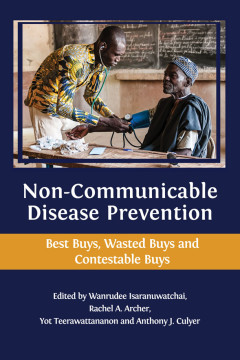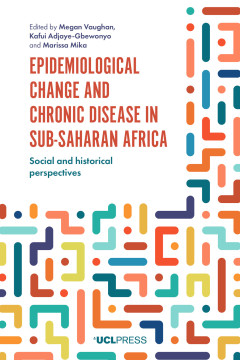Ditapis dengan

Emergence of infectious diseases :risks and issues for societies
From SARS to avian influenza, Ebola virus and MERS-CoV, infectious diseases have received increasing attention in recent decades from scientists, risk managers, the media and the general public. What explains the constant emergence of infectious diseases? What are the related challenges? In five chapters, experts from different scientific fields analyse the ecological, social, institutional and…
- Edisi
- -
- ISBN/ISSN
- 9782759227730
- Deskripsi Fisik
- 127p. : ill.
- Judul Seri
- -
- No. Panggil
- 616.905 EME e

Non-communicable disease prevention:best buys, wasted buys and contestable buys
Non-communicable diseases (NCDs) are the leading cause of death worldwide, contributing to over 73% of all deaths annually. Each day NCDs cause more than 100,000 deaths, 80% of which occur in low- and middle-income countries. NCDs, however, are largely preventable, and a great deal of technical knowledge exists about how to prevent and manage them. Why, then, have we, as a global community, not…
- Edisi
- -
- ISBN/ISSN
- 9781783748655
- Deskripsi Fisik
- xxix, 181 p. : ill. : ind. ; 24 cm
- Judul Seri
- -
- No. Panggil
- 362.1 NON n

Epidemiological Change and Chronic Disease in Sub-Saharan Africa :Social and …
Epidemiological Change and Chronic Disease in Sub-Saharan Africa offers new and critical perspectives on the causes and consequences of recent epidemiological changes in sub-Saharan Africa, particularly on the increasing incidence of so-called ‘non-communicable’ and chronic conditions. Historians, social anthropologists, public health experts and social epidemiologists present important ins…
- Edisi
- -
- ISBN/ISSN
- 9781787357044
- Deskripsi Fisik
- xiii, 350p. ill;
- Judul Seri
- -
- No. Panggil
- 614.096 EPI M
 Karya Umum
Karya Umum  Filsafat
Filsafat  Agama
Agama  Ilmu-ilmu Sosial
Ilmu-ilmu Sosial  Bahasa
Bahasa  Ilmu-ilmu Murni
Ilmu-ilmu Murni  Ilmu-ilmu Terapan
Ilmu-ilmu Terapan  Kesenian, Hiburan, dan Olahraga
Kesenian, Hiburan, dan Olahraga  Kesusastraan
Kesusastraan  Geografi dan Sejarah
Geografi dan Sejarah